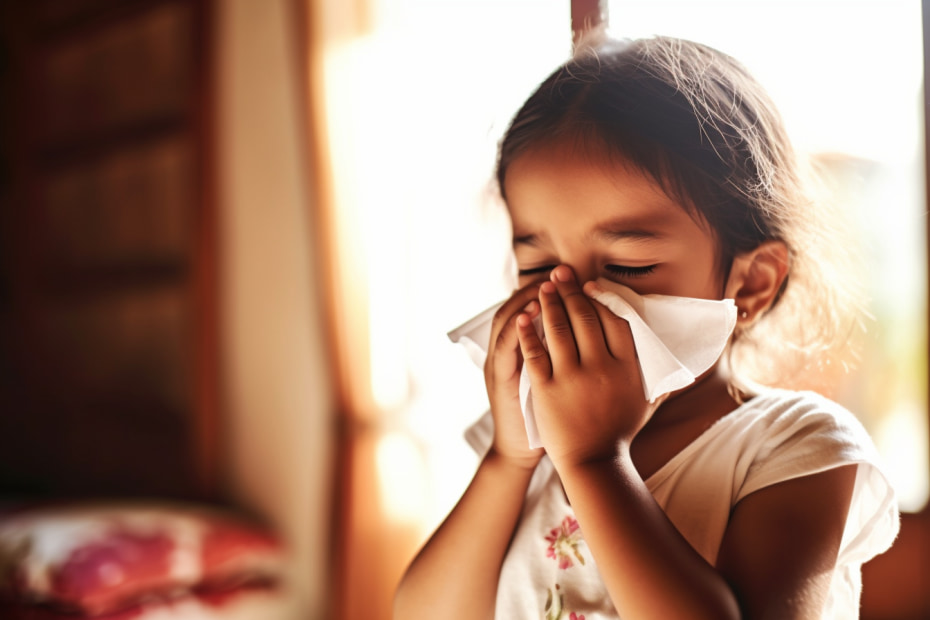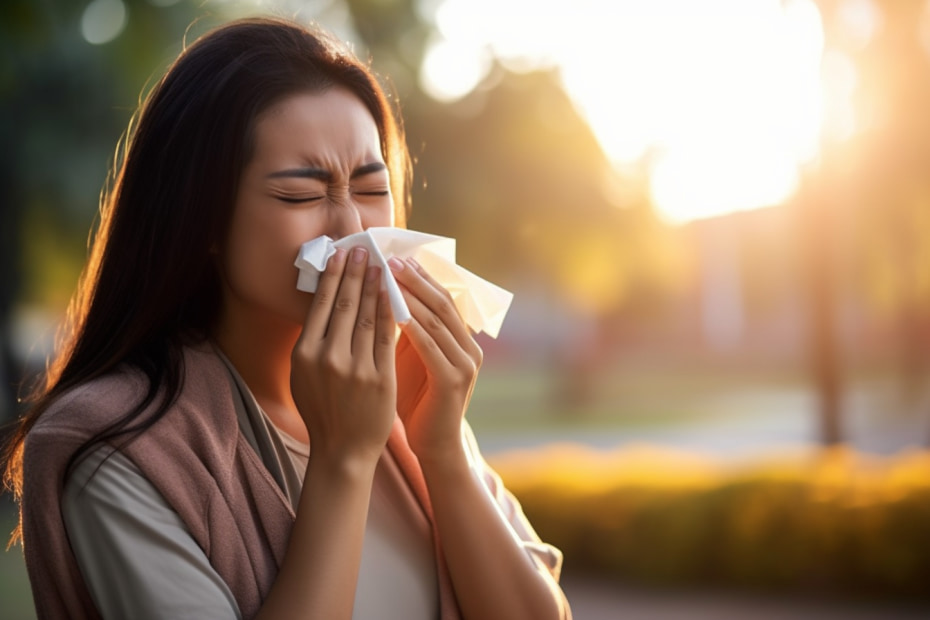In the midst of the ongoing COVID-19 pandemic, understanding the symptoms associated with the virus is crucial for early detection and prevention. One common question that arises is whether a runny nose is a symptom of COVID-19.
In this comprehensive blog post, you will learn the scientific details about the relationship between COVID-19 and a runny nose. We will address the significance of this symptom, discuss the need for testing, explore other symptoms associated with COVID-19, examine alternative explanations for a runny nose, and provide guidance on preventing transmission.
Runny Nose: Is A Runny Nose A Symptom Of Covid-19?
Before diving into this question, you may ask, “What is a runny nose anyway?” A runny nose, medically known as rhinorrhea, is a condition characterized by the excessive production of fluid from the nasal passages, often accompanied by the sensation of fluid dripping or flowing from the nose.
COVID-19 manifests with a wide range of symptoms, and while a runny nose is common in respiratory infections, its link to COVID-19 generated significant interest in recent years, especially during the height of the pandemic.
Research suggests that a runny nose may indeed be present in COVID-19 cases, with a frequency range of 3 to 6 out of 6 to 19 reported cases. However, it is important to note that a runny nose alone is not a definitive indicator of COVID-19.
Moreover, the Omicron variant is more likely to cause a runny nose compared to previous variants. Other common symptoms such as cough, fever, and shortness of breath often accompany it. The presence of multiple symptoms, along with a runny nose, increases the likelihood of a COVID-19 infection.
Should A Person Get A Test If They Have A Runny Nose?

Due to the potential overlap of symptoms with other respiratory illnesses, such as the common cold or seasonal allergies, it is advisable for individuals with a runny nose to consider getting tested for COVID-19.
This becomes particularly important if there is a known exposure to the virus or if other common symptoms of COVID-19 are present, such as sore throat, body aches, muscle aches, fever, and other cold symptoms.
Timely testing enables early detection, aids in contact tracing efforts, and helps to prevent further transmission. It is essential to follow local health guidelines and consult healthcare professionals for specific testing recommendations.
If you feel unwell after being in close contact with a person known to have the coronavirus disease and can’t go to a testing center, you can order a covid test from a trusted brand or have a test service done at your home.
While a runny nose does not definitely indicate COVID-19, it’s always best to keep your loved ones safe from contracting any respiratory tract infections, especially the ones who are prone to develop a serious illness.
Other Symptoms Of Covid-19

When it comes to the symptoms of COVID-19, it’s important to note that the presentation can vary from person to person. While some individuals may experience mild symptoms or even remain asymptomatic, others may develop more severe illness.
Here is a list of COVID-19 symptoms, ranging from the most common to the least common, based on available research and clinical observations:
1.Fever: Fever is one of the most common symptoms of COVID-19. It is often an early indication of infection and can range from low-grade to high-grade temperatures.
2.Cough: A persistent cough is another prominent symptom of COVID-19. It may be a dry cough or accompanied by the production of phlegm and a scratchy throat.
3.Fatigue: Many individuals with COVID-19 experience fatigue, which can range from mild to severe. Fatigue may persist even after other symptoms have subsided.
4.Shortness of Breath: Shortness of breath, or difficulty breathing, is one of the severe symptoms of COVID-19. It is important to note that shortness of breath may be a sign of a more serious illness and should be promptly evaluated.
5.Muscle Aches: Some individuals infected with COVID-19 may experience muscle aches or myalgia. This symptom is often described as a generalized or localized discomfort in the muscles.
6.Sore Throat: A sore throat can be present in COVID-19 cases, but it is not as common as a fever or cough. It may range from mild sore throat to significant discomfort.
7.Headache: Headaches have been reported in some COVID-19 cases. The type and severity of the headache can vary.
8.Loss of Taste or Smell: An intriguing symptom of COVID-19 is the loss of taste (ageusia) or smell (anosmia). This symptom can occur even in the absence of other respiratory symptoms.
9.Nasal Congestion: Nasal congestion, or a stuffy nose, can occasionally be present in COVID-19 cases. It may contribute to the sensation of a runny nose or difficulty breathing through the nose.
10.Nausea or Vomiting: While less common, some individuals with COVID-19 may experience gastrointestinal symptoms such as nausea or vomiting.
11.Diarrhea: Similarly, diarrhea has been reported in some COVID-19 cases, although it is not among the most common symptoms.
12.Conjunctivitis: Although less frequent, it is possible for COVID-19 to cause conjunctivitis, commonly known as pink eye.
It’s important to note that this list is not exhaustive, and new information about COVID-19 symptoms continues to emerge as research progresses.
Additionally, some individuals may experience a combination of these symptoms, while others may have a milder presentation or remain asymptomatic.
If you experience any concerning symptoms or suspect you have been exposed to the virus, it is essential to consult with healthcare professionals and follow local health guidelines for testing and care.
What Else Could It Be?
A runny nose, or rhinorrhea, can have various causes. While it can be a symptom of COVID-19, it can also be attributed to other factors. Here are some common causes of a runny nose:
Viral Infections
Viral infections have similar symptoms, such as the common cold or influenza. These infections cause inflammation of the nasal passages, leading to increased mucus production and nasal congestion.
Some of the causes of viral symptoms include the influenza virus, RSV, adenovirus, parainfluenza, and other viruses.
Allergies
A runny or stuffy nose is one of the most common allergy symptoms. It occurs when the immune system overreacts to allergens such as pollen, dust mites, or pet dander. Allergies typically cause persistent nasal congestion, itching, sneezing, and a runny nose.
Seasonal allergies, triggered by specific plants or trees, may lead to recurring symptoms during certain times of the year.
However, allergy symptoms tend to resolve quicker, while flu symptoms take longer to go away.
Sinusitis
Sinusitis is an inflammation of the sinuses, often resulting from a bacterial or viral infection. It can cause a range of symptoms, including facial pain, pressure, nasal congestion, and a runny nose. The mucus produced during sinusitis may appear thick and discolored.
Environmental Factors
Environmental factors can contribute to a runny nose. Exposure to irritants such as smoke, strong odors, air pollutants, or changes in temperature and humidity can trigger increased mucus production and nasal congestion.
Nasal Polyps
Nasal polyps are noncancerous growths that can develop in the nasal passages or sinuses. They can obstruct the nasal passages, leading to persistent nasal congestion and a runny nose. Nasal polyps are often associated with conditions like allergic rhinitis, asthma, or chronic sinusitis.
Medications
Certain medications, such as nasal decongestant sprays, may provide temporary relief from nasal congestion but can lead to rebound congestion and a runny nose if used for an extended period. This condition is known as rhinitis medicamentosa.
Hormonal Changes
Hormonal changes, particularly during pregnancy or menstruation, can affect nasal passages and result in increased mucus production and a runny nose.
Other Causes
Other less common causes of a runny nose include certain food sensitivities, structural abnormalities in the nasal passages, exposure to cold temperatures (known as cold-induced rhinitis), and irritant-induced rhinitis.
How To Prevent Transmission

Preventing the transmission of COVID-19 is crucial to reduce the spread of the virus and protect individuals and communities. Here are some key measures that can help prevent the transmission of COVID-19:
- Vaccination: Getting vaccinated against COVID-19 is one of the most effective ways to prevent transmission. Vaccines have been shown to reduce the risk of severe illness, hospitalization, and death. Research shows that unvaccinated people have a high risk of developing symptoms and transmitting the virus.
- Practice good hand hygiene: Regularly washing your hands with soap and water for at least 20 seconds helps eliminate the virus if it’s present on your hands. If soap and water are not available, using hand sanitizers with at least 60% alcohol content can also be effective.
- Wear face masks and maintain physical distancing: Wearing a face mask helps contain the virus, especially if you have other symptoms of a viral illness. The recommended distance may vary, but it is generally advised to maintain at least 1 meter (3 feet) of distance in public settings.
- Avoid large gatherings: Crowded gatherings, especially in enclosed spaces, pose a higher risk of COVID-19 transmission.
- Stay informed and follow health guidelines: Stay updated with the latest information and guidelines from reputable health authorities. Follow local public health guidelines, including travel advisories, testing recommendations, and quarantine protocols.
When To Contact A Doctor

If you experience a runny nose along with other COVID-19 symptoms, it is advisable to contact a healthcare professional for guidance.
Additionally, if your symptoms worsen, persist for an extended period, or if severe symptoms overlap, such as difficulty breathing, chest tightness, or persistent fever, immediate medical attention is warranted.
Healthcare providers will assess your symptoms, provide appropriate advice, and determine if further testing or medical care is necessary.




















































